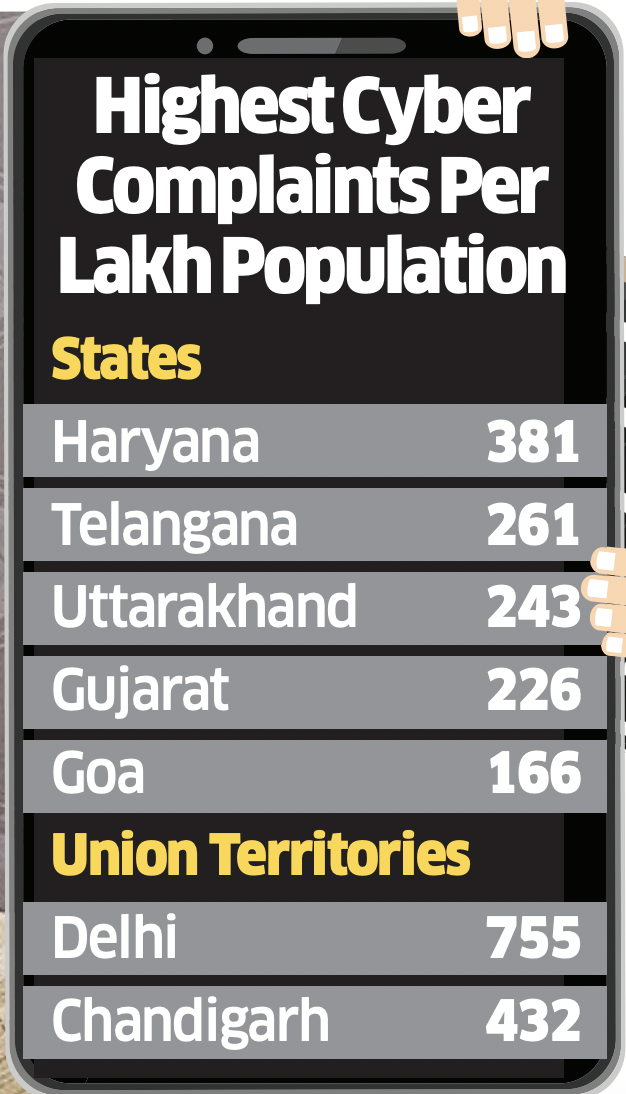G20 website targeted at least 16 lakh times last year: Cyber agency
India’s official G20 website was attacked at least 16 lakh times last year, Indian Cyber Crime Coordination Centre (I4C) revealed on Wednesday. It added that Rs 10,319 crore were siphoned off by criminals between April 2021 and December 2023.
Victims were also targeted using online investment fraud, illegal lending apps, sextortion and OTP forwards during the period, it said.
Most crimes originated from China, Cambodia and Myanmar and involved non-state actors, said the government body.
The law enforcement agencies were able to block Rs 1,127 crore belonging to 4.3 lakh victims, it added. However, returning money to the victims remains a big challenge as it involves a complex process and we are working on various models to expedite it, said I4C CEO Rajesh Kumar. He added that about 9-10% of the seized money have been returned so far.

The authorities blocked 295,461 fraud SIM cards, 2,810 websites, 595 mobile apps and 46,229 IMEIs used in these crimes. The national average of cyber complaints in 2023 was 129 per one lakh population. On average, more than 5,000 cyber complaints are registered per day. The number of complaints grew by 113.7% from 2021-2022, it added.
Out of 31 lakhs complaints on the online portal, only 66,000 FIRs could be registered by state police since April 2021. I4C is a body established by the Ministry of Home Affairs to provide a framework and eco-system for law enforcement agencies to deal with cybercrime in a coordinated manner.
Kumar said that regions near Delhi are using sextortion, online booking, OLX-related crimes to trick the victims. Gangs operating from Jharkhand, etc are using KYC expiry, Android banking malware-type scams to siphon off money from gullible individuals. He said other major cyber crimes are duping people of their money using investment applications and websites offering part-time jobs and ponzi schemes, illegal lending applications and customer care centres. There were also cases of android malware fraud by seeking OTPs to take control of the victims’ computer systems, impersonation by taking over social media accounts and sextortion.Another success, Kumar said, was when the external affairs ministry managed to bring back citizens from Myanmar, where they were taken in the lure of job opportunities and held back to commit cyber frauds.
 Firewall Security Company India Complete Firewall Security Solutions Provider Company in India
Firewall Security Company India Complete Firewall Security Solutions Provider Company in India











